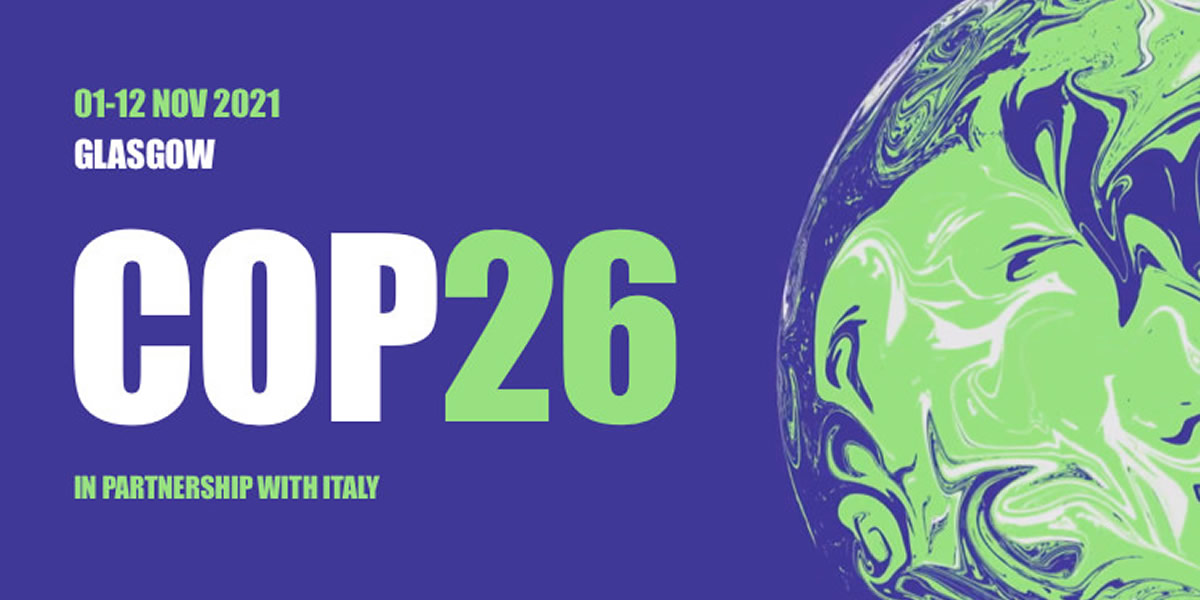Pacific Institute launches Water Resilience Issue Brief, Calls on Decisionmakers to Rapidly Scale Water Resilience Solutions in Build-Up to COP26
October 29, 2021
Amanda Bielawski, Heather Cooley, Jason Morrison, Gregg Brill

Never before have the global water and climate agendas been so closely linked. More than 30 years ago, the Pacific Institute made some of the earliest projections about how climate change would wreak havoc on the water cycle. Today, we see many of these impacts before our very eyes. Amid climate change, intensifying floods and droughts have affected people, nature, and economies. Further illustrating the water crisis, SDG 6 for water is “alarmingly off track,” an estimated 2.2 billion people (about a quarter of the world’s population) lack access to safe drinking water, businesses face material water risks to their direct operations and supply chains, and ecosystems are suffering.
“The Pacific Institute conducted some of the earliest groundbreaking research linking climate change and water systems.”
COP 26 advances water-climate connections
As we approach COP26 in Glasgow, we recognize how pivotal this United Nations Climate Change Conference will be in advancing water on the global climate agenda. After decades of work by water leaders to integrate water and climate solutions, COP26 presents a unique moment in time.
Notably, more than 25 years ago, long before this climate-water connection was widely recognized in mainstream policy, the Pacific Institute conducted some of the earliest groundbreaking research linking climate change and water systems. It also issued some of the earliest warnings to policymakers and corporate leaders, while advancing solutions toward water security and sustainability. And in 2019, it announced an organizational goal to catalyze the transformation to water resilience in the face of climate change.
“After decades of work by water leaders to integrate water and climate solutions, COP26 presents a unique moment in time.”
Launch of Water Resilience Issue Brief
Today, in support of its organizational goal and in anticipation of COP26’s historic opportunity to unite water and climate leaders, the Pacific Institute launches its Water Resilience issue brief. The Pacific Institute defines “water resilience” as the ability of water systems to function so that nature and people, including those on the frontlines and disproportionately impacted, thrive under shocks, stresses, and change. Water resilience builds upon the concepts of water security and sustainability, while recognizing that water systems must be able to respond to stresses and shocks, including those increasingly caused by climate change. While climate change is a primary driver of this focus, water resilience can address a wide range of environmental, social, economic, and political pressures on water.
Building on an increasingly robust literature, the Pacific Institute finds that water resilient systems are often comprised of a combination of six characteristics:
- Robust
- Redundant
- Flexible
- Integrated
- Inclusive
- Just and Equitable
Recognizing water resilience is not measured as a binary condition but along a spectrum, we find that the more of these six components a water system has, the more resilient it will be.
Urgent call to policymakers and corporate leaders
Most critically, we call upon decisionmakers across all segments of society to commit to achieving water resilience by rapidly scaling solutions. These solutions include integrating nature-based solutions with grey infrastructure, as well as increasing investments in water efficiency and reuse. In all cases, the Pacific Institute calls upon this work to prioritize all stakeholders, especially frontline communities often disproportionately impacted by climate change, as well as the natural environment.
“Most critically, this Issue Brief calls upon decisionmakers across all segments of society to commit to achieving water resilience by rapidly scaling solutions.”
The Pacific Institute provides a range of open-source tools and resources to support uptake of these solutions, many of which will be highlighted during COP26. These include two key starting points for those considering investments in nature-based solutions: a guide on Benefit Accounting of Nature-Based Solutions for Watersheds and the NBS Benefits Explorer tool. Additionally, the Water Resilience Assessment Framework (WRAF) is a method to be used, either individually or collectively, to gain insight into how to measure progress towards long-term water resilience and prevent shocks and stresses from becoming crises. Finally, the Pacific Institute launched a comprehensive assessment that identified the critical importance of water efficiency and reuse for reducing water-related greenhouse gas emissions.
Mobilizing the business community
During COP26, as the Co-Secretariat of the Water Resilience Coalition, the Pacific Institute will partner with the United Nations Global Compact and CEOs of major global companies to launch a bold new vision for water resilience. Represented by 25 CEOs with US$3.28 trillion in market capitalization, the Water Resilience Coalition is elevating global water stress to the top of corporate agendas and leading large-scale collective action. By 2030, these CEOs aim to drive positive water impact across 100 water-stressed basins globally, improving lives for more than 3 billion people living with water insecurity. In this way, the Water Resilience Coalition is a powerful lever to mobilize the broader business community in moving—collectively—toward a more water resilient world.
2030 guiding vision
The Water Resilience Issue Brief informs the Pacific Institute’s 2030 organizational goal to “catalyze the transformation to water resilience in the face of climate change.” It also aims to advance understanding and achievement of water resilience by governments, policymakers, businesses, NGOs and other water policy and practice actors.
“The water-related impacts of climate change call for bold and immediate action.”
Climate change calls for bold and immediate action. The need for rapid changes in policies and practices along with new investments has never been greater than it is today.
Read the Water Resilience issue brief here.
More information about how the Pacific Institute can support the public and private sector in this critical task is available at www.pacinst.org.
<--! hides title overlay on header image -->


